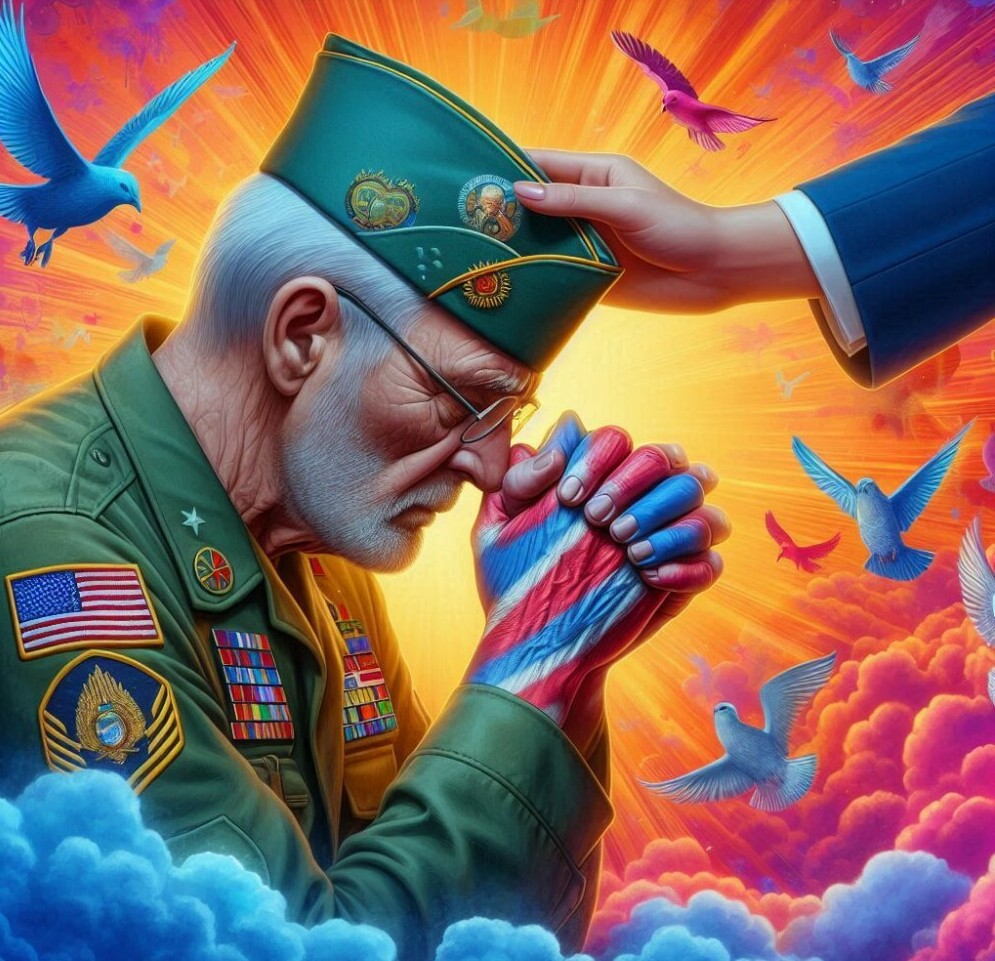
Although grief is an inevitable part of life, losing a fellow service member is almost unimaginable for our veterans.
I’m going to introduce you to a side of our veterans’ lives that often goes unnoticed—their unique journey through grief. This isn’t just about the sorrow felt after losing a loved one; it’s also about the profound sense of loss that comes from leaving behind a life they once knew.
You’re going to find out about how grief manifests differently in veterans. Whereas civilians might experience grief in a more socially recognized context, such as the death of a family member, veterans frequently grapple with losses that aren’t as visible or widely understood – like the bonds broken with their fellow service members or the abrupt end to a structured way of life when they transition to civilian status.
It’s crucial that we understand the signs of grief in veterans. That’s going to include recognizing changes in behavior, such as withdrawal or anger, and understanding that these could be cries for help. I’m here to help you by providing insight into these signals so friends and family can offer the right support.
I really hope that you’ll gain a deeper appreciation for the complexities of what veterans go through when dealing with grief. In my opinion, acknowledging this is the first step in creating a bridge of understanding and support for our veterans.
If you’re a veteran dealing with grief, you might feel like you’re walking through uncharted territory. But guess what? You’re not alone. Many before you have walked this path, and understanding the stages of grief can provide a roadmap that might help make sense of the complex emotions you’re experiencing.
First, I’m going to explain the traditional stages of grief: denial, anger, bargaining, depression, and acceptance. Designed by Elisabeth Kubler-Ross, these stages aren’t linear. They can happen in any order, and you might even circle back to earlier stages. It’s normal to feel like you’re making progress one day and regressing the next, that’s part of the journey.
Then, there’s something you’re going to find out about the unique experiences of fellow veterans who’ve been in your shoes. I’ll share their personal stories and insights to provide a diversity of perspectives. Each story underscores the truth: there’s no one ‘right’ way to grieve.
In my opinion, one of the best things you can do is reach out for support. That might include connecting with a counselor, joining a support group, or simply talking to trusted friends or family members. These resources and systems are there for you, and I’ll highlight how you can take advantage of them. You can always adjust your approach down the road, but taking that first step is critical.
Don’t worry too much about what you ‘should’ be feeling. Your emotions are valid, and they reflect your personal experience. Just don’t focus too much on perfection; navigating grief is about progress, not perfection.
Creating a Supportive Environment for Veterans in Mourning

If you want to help a veteran who is dealing with grief, creating a supportive environment is key. This doesn’t only mean being there to listen, but also understanding the unique aspects of a veteran’s experience. I’m here to help you with practical ways to build such an environment.
Family and friends play a significant role in a veteran’s life, especially during tough times. Knowing how to approach delicate conversations and when to give space can make a big difference. Choose something that resonates with you, whether that’s offering a listening ear or simply being physically present without the need for conversation.
Your support efforts can extend beyond personal interactions. There’s a lot of opportunity in promoting a broader understanding within your community. This can involve organizing local awareness events or participating in initiatives focused on veteran support. Collaboration with veterans’ organizations can enhance these efforts, offering a bridge between personal intention and public action.
In my opinion, communication is the cornerstone of support. Learn to recognize when a veteran might be signaling for help or when they might need professional support. Encourage open conversations about mental well-being and let them know it’s normal to seek counselling or therapy. There are numerous veterans’ services and programs that specialize in grief counselling, many of which are underutilized due to lack of awareness.
In the next section, we’re going to look at how advocacy and public awareness can further aid veterans in their grief journey. Not just by providing immediate support, but by pushing for systemic changes that ensure long-term well-being for our nation’s heroes.
Taking Action: How to Be There for Grieving Veterans
When a veteran is grappling with grief, it’s not just about providing a shoulder to cry on; it’s also about making sure they have access to the resources they need to heal. You can play a vital role in this process by raising awareness and advocating for veterans’ mental health.
Numerous organizations and institutions are tirelessly working to address the complexities of veterans’ grief. By supporting these groups, whether through volunteering, fundraising, or spreading the word, you contribute to a wider safety net for our veterans.
If you’re wondering how to get started, consider reaching out to local veterans’ associations or community centres. They often have initiatives in place that can benefit from your time or skills. Moreover, don’t underestimate the power of simply checking in with the veterans in your life. Sometimes, the most profound help comes from just being there and listening.
No single effort will erase the pain of loss for a veteran, but small acts of kindness and understanding can make a significant difference. Remember, healing is a journey, and by standing with our veterans as they walk this path, we honor their service and their fallen comrades.
Kindly share your experiences or contributions by dropping your comments below.
Are You a Wealthy Affiliate Yet? Affiliate Marketing Success.
Simplified. Turn YOUR Passion, Hobby or Interest into YOUR Success Story! Join Wealthy Affiliate today: https://www.
**Here’s a little transparency: Our website contains affiliate links. We may receive a small commission if you click and make a purchase. Don’t worry, as there’s no extra cost to you. It’s a simple way to support our mission of bringing you quality content.
Follow me on social media!

This blog post sheds much-needed light on the often overlooked aspect of grief among veterans. You eloquently articulate the unique challenges veterans face, from the loss of fellow service members to the upheaval of transitioning to civilian life. Understanding these complexities is crucial in offering meaningful support to our veterans.
You provide valuable insights into navigating the stages of grief, emphasizing that there’s no one-size-fits-all approach. By sharing personal stories and practical advice, he offers a roadmap for veterans and their loved ones.
The call to action to create a supportive environment for grieving veterans resonates deeply. It reminds us that our support extends beyond mere words—it involves actively listening, offering understanding, and advocating for systemic changes to ensure veterans receive the care they deserve.
As we reflect on Makinde’s words, let’s ask ourselves: How can we better recognize the signs of grief in veterans and provide the support they need?
– Scott
Hello Scot,
I appreciate your insightful and invaluable contributions to this article.
Just as you have rightly noted, understanding the plight and empathy towards our veterans cannot be overemphasized.
Support goes further and farther than mere words. More robust actions and strategies to ensure systemic changes in ensuring veterans receive the care and needed support must be encouraged and expanded.
I thank you once again for your insight.
I wish you all the best.
Makinde
I just read your article on veterans dealing with grief, and it was incredibly insightful. The unique challenges that veterans face when coping with loss are often overlooked, and your article does a great job of addressing them with sensitivity and understanding. I particularly appreciated the emphasis on the importance of community and peer support, as well as the various resources available for veterans.
I’m curious, though: In your experience, have you found any specific support groups or organizations to be particularly effective in helping veterans navigate their grief? Your recommendations would be very helpful for those looking for support.
Hello Kiersti,
Thank you, for your kind words and thoughtful contributions to this topic.
I’m glad to know that you found the article helpful and insightful, while focusing on community and peer support.
Some of the highly effective organizations that support veterans dealing with grief include; Tragedy Assistance Program for Survivors (TAPS), Wounded Warrior Project, local VA hospitals also have grief counselling and support tailored specifically for veterans.
I appreciate your contributions and hope this information helps someone.
I wish you all the best.
Makinde